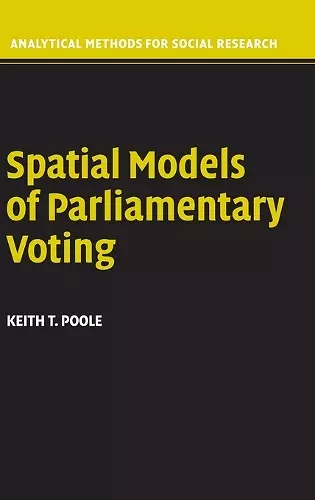Spatial Models of Parliamentary Voting
Format:Hardback
Publisher:Cambridge University Press
Published:11th Apr '05
Currently unavailable, and unfortunately no date known when it will be back
This hardback is available in another edition too:
- Paperback£30.99(9780521617475)

This book presents a simple geometric voting model for analyzing parliamentary roll call data.
Presents a geometric voting model for analyzing parliamentary roll call data. The model can be used to study various topics related to legislative voting, including how political parties evolve over time, the existence of sophisticated voting, the representation of ethnic minorities in the legislature, and constituency interests and legislative behavior.This book presents a simple geometric model of voting as a tool to analyze parliamentary roll call data. Each legislator is represented by one point and each roll call is represented by two points that correspond to the policy consequences of voting Yea or Nay. On every roll call each legislator votes for the closer outcome point, at least probabilistically. These points form a spatial map that summarizes the roll calls. In this sense a spatial map is much like a road map because it visually depicts the political world of a legislature. The closeness of two legislators on the map shows how similar their voting records are, and the distribution of legislators shows what the dimensions are. These maps can be used to study a wide variety of topics including how political parties evolve over time, the existence of sophisticated voting and how an executive influences legislative outcomes.
'This book achieves its aim of explaining how to build a spatial model and will be essential reading for those engaged in that, while still being readable and related well to real politics.' Political Studies Review
ISBN: 9780521851947
Dimensions: 235mm x 158mm x 23mm
Weight: 450g
248 pages